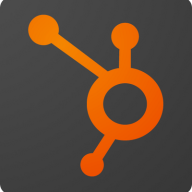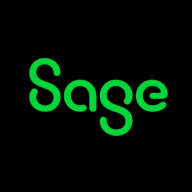

Sage CRM and HubSpot CRM compete in the Customer Relationship Management category. HubSpot CRM appears to have the upper hand due to its strong marketing automation and ease of onboarding, making it particularly appealing for marketing-driven businesses.
Features: Sage CRM focuses on finance, inventory control, and distribution with robust opportunity management and reporting. It also integrates with Microsoft Office 365 and supports scalable user capabilities. HubSpot CRM excels in marketing automation, ease of use, and integrates seamlessly with social media. Its marketing suite and customizable reporting provide significant value.
Room for Improvement: Sage CRM could enhance email and social media integration, reduce downtime, and improve its dashboard for better reporting. HubSpot CRM needs better integration options, more customization, and cost-effective pricing tiers, especially for small teams. It also faces challenges with duplication management and mobile app features.
Ease of Deployment and Customer Service: Sage CRM offers flexible deployment options including on-premises and cloud solutions, supported by a comprehensive knowledge base. HubSpot CRM primarily utilizes public cloud solutions with limited on-premises offerings. Its support is rapid, but there's reliance on technical support for extensive customization needs.
Pricing and ROI: Sage CRM is moderately priced with a notable ROI for larger enterprises. Its annual licensing might be costly but offers substantial value for businesses needing strong financial solutions. HubSpot CRM offers a free version ideal for small companies, with pricing based on features and user tiers. Its affordability in lower tiers remains a major benefit for small and growing enterprises.
There is always an account rep that's available, and there is a technical account rep that is available for every account.
Part of it is different language use, and while that's okay, it wasn't immediately evident where to find help, verify, or submit a question and get responses.
HubSpot's customer service is excellent and fast.
Handling around 100 to 150 users is fine.
There are a lot of enterprises using it, however, even as a GTM for HubSpot, their target market is predominantly SMB.
HubSpot should establish some pre-deployable packages that, when contracted, offer basic functionality.
A better CRM can be achieved by providing more customization features.
They are not at the pace or effectiveness of AgentForce by Salesforce.
HubSpot stands out for its ease of use, especially with sequence creation compared to other CRM solutions.
All the automation features, where I can completely automate a cadence like emailing, lead scoring, and lead qualification, everything can be automated, including all workflows.
The feature that I find valuable is the customer 360-degree view and the marketing automation.


HubSpot CRM is a comprehensive customer relationship management software that helps businesses manage their sales, marketing, and customer service activities. It offers a wide range of features, including contact management, email tracking, deal tracking, and task management.
With its intuitive interface and easy-to-use tools, HubSpot CRM allows users to streamline their sales processes, track customer interactions, and improve overall productivity. It also integrates seamlessly with other HubSpot products, such as marketing automation and customer service, providing a complete solution for businesses of all sizes.
Whether you're a small startup or a large enterprise, HubSpot CRM can help you organize and grow your customer relationships.
We monitor all CRM reviews to prevent fraudulent reviews and keep review quality high. We do not post reviews by company employees or direct competitors. We validate each review for authenticity via cross-reference with LinkedIn, and personal follow-up with the reviewer when necessary.